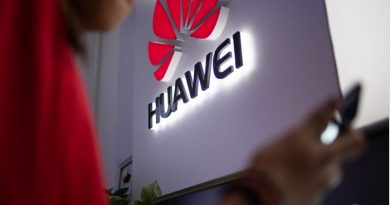The State of Freedom of Expression in Nigeria and the NITDA Code of Practice by PIN
Freedom of expression is a universal human right, a right fundamental to a democratic society which is why it is enshrined in section 39 of the Constitution and Article 19 of the Universal Declaration of Human Rights (UDHR). Freedom of expression is important for an inclusive participation in society. It also allows citizens to seek out and circulate information, ideas, comments and opinions and hold those in authority to account. This right extends to the press, providing a platform for multiple voices to be heard.
The principle of freedom of expression and human rights must apply not only to traditional media but also to the Internet and all types of emerging media platforms, which will contribute to development, democracy and dialogue.
We acknowledge that it is not an unfettered right and there are legal safeguards to protect those who may be vulnerable and prevent the abuse of these rights. However, around the world, there are governments and those wielding power who find many ways to obstruct it.
The Economic Community of West African States (ECOWAS) Court reinforced the importance of this right with their recent judgement on the Twitter ban, where it held that access to Twitter, being one of the social media platforms of choice to receive, disseminate and impart information, is one such derivative right that is complementary to the enjoyment of the right to freedom of expression pursuant to the provisions of Article 9 (1) & (2) of the African Charter on Human and Peoples’ Rights (ACHPR) and Article 19 of the International Covenant on Civil and Political Rights (ICCPR). Consequently, to derogate from such a right requires lawful justification.
Although the court made its position clear, the civic space especially online has been shrinking for some time. We saw the passing of the Cybercrimes Act, the rejection of the digital rights and freedoms bill, the initiation of the hate speech and social media bills and now the draft Code of Practice for Interactive Computer Service Platforms/Internet Intermediaries and Conditions for Operating in Nigeria.
Our call to action goes to all stakeholders involved;
- To the legislature: Pass the digital rights and freedom bill to guarantee the rights of Nigerian citizens in the digital age and to promote trust.
- The Executive: Engage in a broader consultation to achieve an inclusive, democratic and rights-respecting approach to content and platform regulations – This consultation must be had at a level-playing field for all concerned stakeholders(Private sector, government, human rights organisation and digital rights organisations)
- Civil society and citizens must continue to hold government accountable and equally work together with the government for better outputs
- The media must remain dogged to report violations and amplify the voices of citizens who daily use digital platforms to hold the government accountable.
- Finally, to our fellow citizens who hold the highest office in the land. Let us continue to partake in governance and hold all and sundry accountable.
About PIN
Paradigm Initiative (PIN) is a social enterprise that builds ICT-enabled support systems and advocates for digital rights in order to improve the livelihoods of under-served young Africans. The organization has worked in communities across Nigeria since 2007, and across Africa since 2017, building experience, community trust and an organizational culture that positions it as a leading social enterprise in ICT for Development and Digital Rights on the continent.
The digital rights advocacy program is focused on the development of public policy for internet freedom in Africa, with offices in Abuja, Nigeria (covering the Anglophone West Africa region); Yaoundé, Cameroon (Central Africa); Nairobi, Kenya (East Africa), Lusaka, Zambia (Southern Africa), Bulawayo, Zimbabwe and Dakar, Senegal.
PIN has built online platforms that educate and serve as safe spaces for the reporting of digital rights violations. These mediums, in the form of reports, short films, and educational online platforms, include Ayeta, Londa and Ripoti.
Paradigm Initiative is also the convener of the Digital Rights and Inclusion Forum (DRIF), a pan-African bilingual Forum that has been held annually since 2013.




